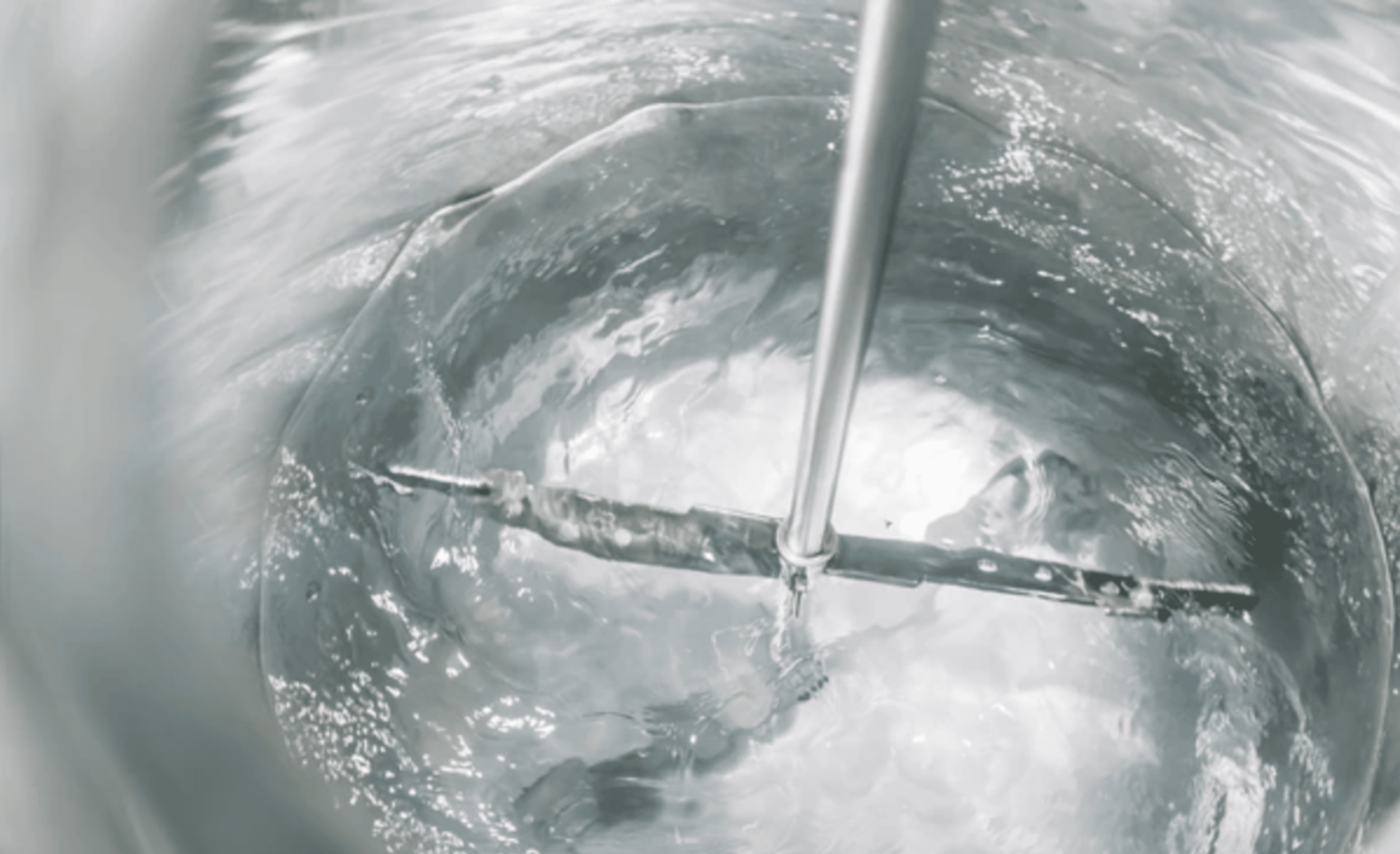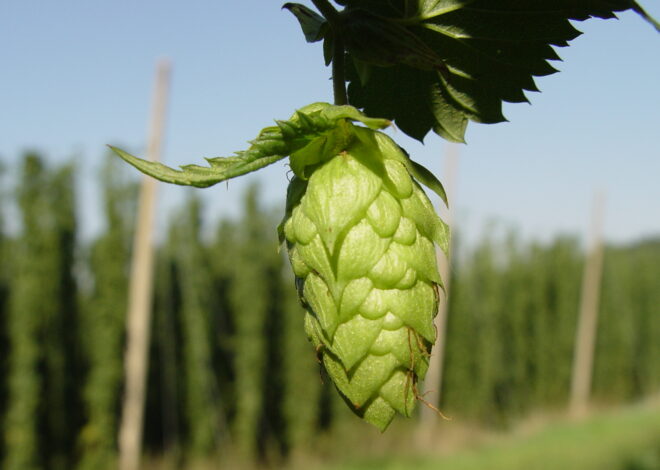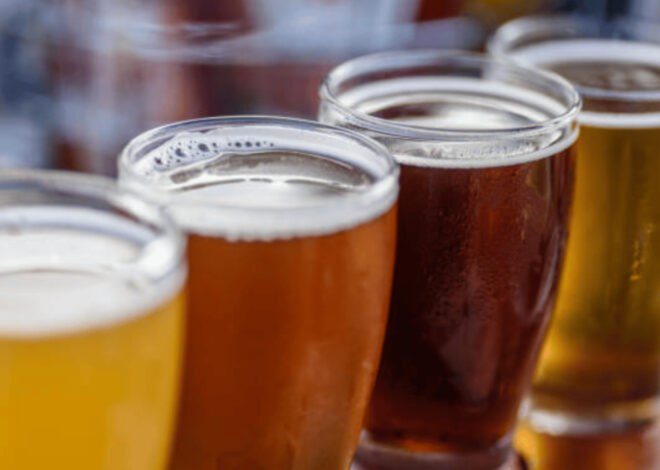
Best Water For Brewing Beer
Welcome to our guide on the best water for brewing beer. Water: the unsung hero of brewing beer. While hops and malt often steal the spotlight, it’s this humble liquid that plays a crucial role in creating your favorite brews. From pale ales to robust stouts, water forms the backbone of every recipe.
But not all water is created equal, and understanding its impact on flavor can elevate your homebrewing game to new heights. Brewing beer isn’t just about mixing ingredients; it’s an intricate dance between science and art. Water quality affects not only taste but also aroma, mouthfeel, and overall balance.
Each style demands specific characteristics from its water source—minerals, pH levels, even temperature can transform a good pint into something extraordinary. Curious about what makes for the best water for brewing beer? Let’s dive deep into this essential element of brewing magic!
The Importance of Water Quality in Brewing
Water quality significantly influences the brewing process. It affects everything from flavor to fermentation. Brewers often overlook this crucial ingredient, but it’s essential for creating a balanced beer. The minerals and pH levels in water can enhance or detract from the overall taste.
Soft water promotes delicate styles, while hard water is better suited for bold ales. Contaminants can spoil a brew before it even reaches fermentation. Chlorine, chloramine, and sulfur compounds are common culprits that leave undesirable tastes and smells. Moreover, different beer styles thrive on distinct water profiles.
Knowing your source’s mineral content helps tailor your approach to achieve desired flavors. Investing time in understanding water quality pays off with each batch brewed. Good-quality water nurtures creativity and craftsmanship in brewing beer at home or commercially.
What Makes the Best Water for Brewing Beer?
The best water for brewing beer isn’t just plain H2O. It’s a carefully balanced mix of minerals and purity that can elevate your brew. pH levels play a significant role. Ideal water should have a neutral pH, around 7, to prevent unwanted flavors from surfacing during fermentation.
Minerals are equally important. Calcium enhances yeast activity and helps with clarity. Magnesium contributes to flavor complexity while sulfate provides crispness in hoppy beers. Remember sodium too; it can soften the palate or add sweetness when used sparingly.
Chloride is great for mouthfeel but should be moderated to avoid overpowering flavors. Contaminants like chlorine must be eliminated for clean tasting beer. Filtering methods help achieve this pristine quality essential for any homebrewer aiming for perfection in their craft.
Understanding Water Profiles and Their Impact on Beer
Water profiles consist of various minerals and elements, each influencing the brewing process. The balance of calcium, magnesium, sodium, sulfate, and bicarbonates shape the character of your beer. Calcium is vital for enzyme activity during mashing. It enhances clarity and stability in the final product.
Magnesium plays a role too but in smaller amounts; it supports yeast health. Sulfate can add crispness to hoppy beers while enhancing bitterness perception. Conversely, chloride contributes to a smoother mouthfeel and richer flavor in malt-forward brews.
Bicarbonates influence pH levels during mash. Higher levels may be beneficial for dark beers but detrimental for lighter styles. Understanding these components helps you tailor water to suit specific beer types better—resulting in a more refined brew that highlights desired characteristics without overshadowing them.
Top 5 Types of Water for Brewing Beer:
When it comes to brewing beer, the type of water you use can make all the difference. Here are five standout options for your next batch.
1. Spring Water
Spring water is often hailed as a top choice for brewing beer, and for good reason. It flows naturally from underground sources, bringing with it a blend of minerals that can enhance the brewing process.
The crisp, refreshing taste of spring water can significantly influence the flavor profile of your beer. Its natural purity means fewer contaminants to interfere with fermentation or alter essential flavors.
What’s more, spring water typically has balanced mineral content—ideal for various beer styles. The presence of calcium and magnesium helps with yeast health while sulfate levels can add just the right amount of bite to your brew.
When sourcing spring water, consider its origin carefully. Different springs impart unique characteristics due to varying geological formations, making each batch distinctive in its own way. This variability adds an exciting layer to homebrewing experimentation.
2. Rainwater
Rainwater is a fascinating choice for brewing beer. It’s pure and free from many of the contaminants found in municipal water supplies.
Collecting rainwater can be an eco-friendly option, tapping into nature’s bounty. However, it does require proper filtration to ensure that any debris or pollutants are removed before use.
The mineral content of rainwater can vary depending on where you live. This variability means brewers might need to adjust their recipes based on the specific qualities of their collected rainwater.
Some enthusiasts appreciate the unique flavors that can come from using rainwater. Its natural softness allows for a clean fermentation process, which can enhance certain beer styles remarkably well.
However, careful monitoring is essential since its pH levels and mineral composition may not always be ideal for every brew. Using it effectively involves understanding how these factors interact with your ingredients during brewing.
3. Well Water
Well water can be a hidden gem for homebrewers. It often boasts unique mineral content that can enhance the flavor profile of your beer. Many brewers appreciate its natural characteristics, which vary significantly from one location to another.
One major advantage is accessibility. If you live in an area with abundant groundwater, well water may be readily available at little to no cost. This makes it an attractive option for those looking to produce quality brews without breaking the bank.
However, there are some challenges associated with using well water. The mineral composition might not always align perfectly with your desired beer style. Regular testing is essential to identify any unwanted contaminants or imbalances in hardness and pH levels.
With careful management and adjustments, well water can become a great asset in your brewing toolkit, providing distinct flavors that make each batch memorable.
4. Reverse Osmosis (RO) Water
Reverse Osmosis (RO) water is a popular choice for brewers seeking purity in their brewing process. This method involves pushing water through a semi-permeable membrane, effectively removing impurities and contaminants.
What’s great about RO water is its consistency. Breweries can rely on the same quality batch after batch. The end result is clean, neutral water that provides a blank canvas for creating beer.
Brewers often remineralize RO water to achieve desired profiles tailored to specific beer styles. By adding minerals back into the mix, you can enhance flavor and aroma while maintaining control over your brew’s final taste.
It offers versatility but requires careful calibration. Too little or too much mineral content can significantly affect the outcome of your beer, so adjustments are key to achieving that perfect balance every brewer strives for.
5. Distilled Water
Distilled water is often overlooked in the brewing community, yet it offers unique advantages. This type of water undergoes a purification process that removes minerals and impurities.
Brewers appreciate distilled water for its neutrality. Without any mineral content, it provides a blank canvas for creating specific beer profiles. You can tailor the taste by adding back chosen minerals to achieve desired flavors.
However, using only distilled water means you’ll need to supplement it carefully. Proper mineral additions are crucial to avoid blandness in your brew.
Experimenting with different combinations can yield fascinating results and elevate your homebrew game. Just remember that balance is key when adjusting your mineral levels—too much or too little can throw off the final product significantly. Distilled water allows creativity while challenging brewers to consider their choices more thoughtfully than ever before.
How to Test Your Water for Brewing Beer
Testing your water for brewing beer is essential to ensure it meets the ideal standards. Start by collecting a sample from your source, whether it’s tap water or spring water. Use a basic testing kit available online or at home brew stores.
These kits typically measure pH levels, hardness, and specific mineral content. Pay attention to calcium, magnesium, sulfate, and chloride concentrations—each plays a crucial role in flavor development. For more detailed analysis, consider sending samples to a lab that specializes in water testing.
They can provide an extensive breakdown of minerals and contaminants. When you have results in hand, compare them with the desired profile for your intended beer style. Knowing what’s present allows you to make informed adjustments later on during the brewing process.
Tips for Adjusting Your Water
Adjusting your water for brewing can elevate your beer to new heights. Start with a water profile analysis. Knowing the mineral content is essential. If your water is too soft, consider adding calcium sulfate or calcium chloride. This enhances mouthfeel and hop character.
A touch of Epsom salt can boost bitterness while providing magnesium. For overly hard water, dilution might be necessary. Mix in some distilled or RO water to balance the minerals. Don’t forget about pH levels! Aim for a range of 5.2 to 5.6 during mashing for optimal enzyme activity.
Experimentation plays a key role here too. Make small adjustments and note their effects on flavor each time you brew. Always taste test your adjusted water before using it in a batch; trust your palate as you refine your approach!
Conclusion: Choosing the Best Water for Your Beer Style
Choosing the best water for your specific beer style requires careful consideration. Each type of water brings unique characteristics that can enhance or detract from your brew. Spring water often provides a balanced profile that many brewers favor, while rainwater is prized for its purity and softness.
If you have access to well water, understanding its mineral content will help you adjust it appropriately for various styles. Reverse osmosis (RO) water offers versatility, allowing you to build your own profile by adding minerals back in as needed. Distilled water can be another blank slate but may require more adjustments depending on the style you’re brewing.
Testing your local supply is key whether you’re using municipal sources or natural waters. Once you’ve identified the qualities of your chosen water, tweaking it to suit different beer recipes becomes an exciting part of the brewing process.
In essence, the perfect brew starts with quality ingredients—including great water tailored to match each style’s requirements. Your journey into crafting exceptional beers begins with this foundational element; embrace experimentation and enjoy discovering what works best for you!



